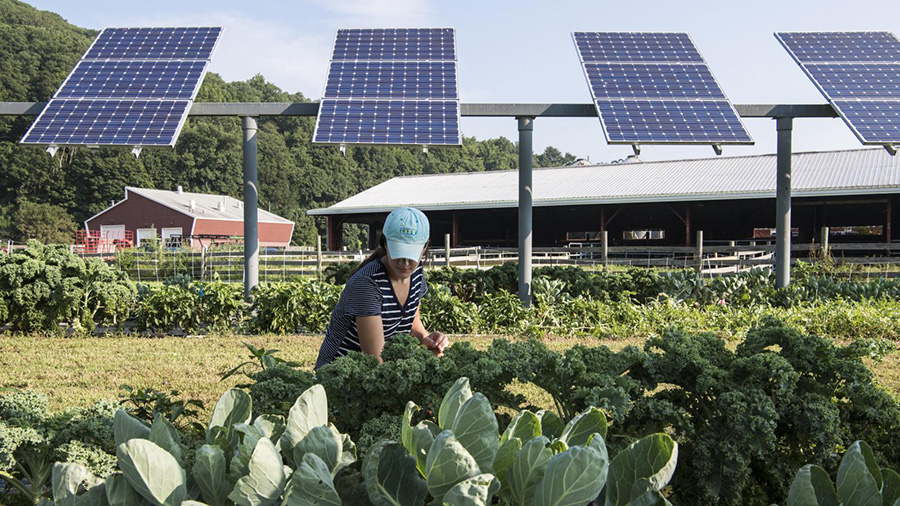||| FROM KATE MIKULAK for WSU EXTENSION OFFICE |||
Solar on Farmland- Opportunities and Considerations in NW WA
When: Thursday, Sept 23, from 6:30 – 8 p.m.
Where: Online via Zoom
Registration: Free! Click here to register: https://bit.ly/farmlandsolar
Speakers:
- Chad Higgins Oregon State University, Biological and Ecological Engineering
- Addie Candib American Farmland Trust
- With special guest from Rainshadow Solar & Energy Solutions, Inc.
- Moderated by Faith Van De Putte, San Juan County Agricultural Resources Committee
- Hosted by WSU San Juan County Extension and SJC Agricultural Resources Committee
In the face of climate change and development pressure, Northwest Washington needs both solar power generation and increased protection of agricultural land. Agrivoltaics are an emerging strategy that incorporates photovoltaic arrays into agricultural systems. Join us on Thursday, Sept 23rd, from 6:30-8pm via zoom to learn about the opportunities, considerations and nitty gritty details.
“Agrivoltaics provide a rare chance for true synergy: more food, more energy, lower water demand,
lower carbon emissions, and more prosperous rural communities,” — Chad Higgins
We’ll take a look at some pros and cons of adding solar to a farm operation, offer some considerations for where and when to site solar on a farm, and discuss what to include in your decision making tree as you think about adding solar arrays to your farm or land. We’ll also hear about the impact of solar on agricultural ecosystems, the opportunities it provides, and a brief overview of the costs of installation and incentives that are available. Pre-registration is required. This presentation is geared toward farmers and agricultural land owners, although all are welcome.
Addie Candib oversees American Farmland Trust’s programs in Washington, Oregon, and Idaho. For 40 years, American Farmland Trust (AFT) has advocated for saving the land that sustains us by protecting farmland, promoting sound farming practices, and keeping farmers on the land. Recognizing the conflicts between farmland protection and renewable energy development, AFT has recently turned its attention to smart solar siting program design and policies in New York, New England, and the Pacific Northwest.
Chad Higgins is an associate professor at Oregon State University in the Biological and Ecological Engineering department. He leads the Nexus of Energy, Water, and Agriculture Laboratory (NEWAg Lab) whose research focuses on resource tradeoffs and sustainability within agricultural systems. His recent work has focused on Agrivoltaics, the mutually beneficial combination of agricultural and solar energy production. This work has received national acclaim and was highlighted as #5 on the National Science Foundation’s most impactful projects of 2019.
Kate Mikulak
Agriculture Program Coordinator
**If you are reading theOrcasonian for free, thank your fellow islanders. If you would like to support theOrcasonian CLICK HERE to set your modestly-priced, voluntary subscription. Otherwise, no worries; we’re happy to share with you.**









I am very interested in the “mutually beneficial” aspects of Agrivoltaics.